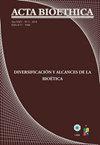IF 0.3
4区 哲学
引用次数: 0
摘要
神经科学是一个快速发展的科学领域,其最近的发现引起了刑法和法医精神病学领域的重大兴趣。神经科学证据越来越多地被用于刑事审判,作为精神病学证词的一部分,尤其是在美国,但在欧洲也是如此。本文介绍了一项涉及法官、律师、精神病学家和神经学家的焦点小组实证研究的结果,旨在通过焦点小组互动过程,从刑事诉讼中涉及的所有行为者的角度审视精神病学证词中神经科学数据的使用。特别是,这项研究旨在检查律师可能使用神经科学证据的方式,法官对这些证据的感知和解释方式,以及精神科专家和神经科学家对神经科学在刑事法庭上使用的有用性、有效性和局限性的看法,特别是与犯罪评估和罪犯构成的累犯风险评估有关。本文章由计算机程序翻译,如有差异,请以英文原文为准。
Οι νευροεπιστήμες στις ψυχιατρικές πραγματογνωμοσύνες: ευρήματα από ομάδες εστίασης
Neuroscience is a rapidly growing scientific field, whose recent findings gain major interest in the field of criminal law and forensic psychiatry. Neuroscientific evidence is increasingly being used in criminal trials as part of psychiatric testimony, particularly in the US, but also in Europe.This article presents the findings of an empirical study with focus groups involving judges, lawyers, psychiatrists and neurologists, aiming to examine through a focus group interaction process, the use of neuroscientific data in psychiatric testimony from the perspective of all the actors involved in the criminal proceedings. In particular, the study aims to examine the way that neuroscientific evidence would likely be used by lawyers, the way that this evidence is perceived and interpreted by judges, as well as the opinion of psychiatrists - experts and neuroscientists concerning the usefulness, effectiveness and limitations of neurosciences’ use in criminal courts, especially in relation with the assessment of guilt and the assessment of the recidivism risk posed by an offender.
求助全文
通过发布文献求助,成功后即可免费获取论文全文。
去求助
来源期刊

Acta Bioethica
医学-卫生政策
CiteScore
0.60
自引率
0.00%
发文量
22
审稿时长
1 months
期刊介绍:
Acta Bioethica is a biannual publication by the Interdisciplinary Center for Studies in Bioethics of the University of Chile (ISSN 0717-5906, press edition, y 1726-569-X, electronic edition), which publishes in three languages: Spanish, English and Portuguese.
Indexed in Science Citation Index (SCI), Scopus, Lilacs, SciELO y Latindex, and in database from several Institutions; it constitutes a pluralistic source of perspectives and an important tribune which accepts the contributions of authors compromised with the interdisciplinary study of ethical determinants and consequences of techno scientific research.
 求助内容:
求助内容: 应助结果提醒方式:
应助结果提醒方式:


